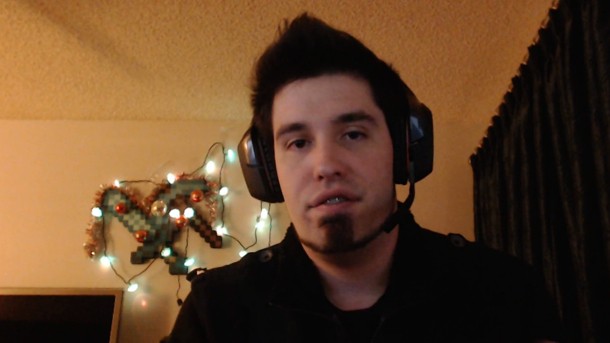Opinion: Twitch And Popular Streamer Share Blame For Server Outages

Yesterday, starting about approximately 4 PM Eastern, a group known as “DerpTrolling” initiated a number of distributed denial of service (DDoS) attacks. During the assaults on League of Legends, Dota 2, and other games, popular streamer James Varga, who goes by the name of “PhantomL0rd” spoke with those initiating the attacks. The recorded stream stands as evidence.
At one point, Varga is egging on the DDoSers. “I’ll put it this way,” he says. “If my team is winning, we’ll keep going. If my team starts to lose, Derp Bros, take this s*** down!” When DerpTrolling accepts the deal, Varga begins laughing loudly.
At the beginning of the match, Varga warns his team that if they don’t win, the server will come down. Shortly thereafter, Varga's team begins to fall behind and Derp fulfills its promise, taking down the Dota 2 server. (Timestamp: 4 hours and 50 minutes.)
This went on for hours, and rather than stop streaming, Varga watched his viewer count skyrocket past 100,000. All the while, he displayed advertisements and raked in new subscribers at $4.99 per month per membership. Varga put his channel in "sub mode," which means that the only way to participate in the conversation via chat is to pay.
Twitch allowed this to continue, and we reached out to the service for answers. “It’s our policy to not comment on partners,” a representative told us. “Keep in mind our terms of service apply to all broadcasters.”
That document includes a provision that prohibits illegal activity. Twitch users agree that they will not "use the Twitch Service for any illegal purpose, or in violation of any local, state, national, or international law, including, without limitation, laws governing intellectual property and other proprietary rights, and data protection and privacy." DDoS attacks are considered a crime under the federal Computer Fraud and Abuse Act.
As Varga’s stream continued and more games were taken down, including Disney’s Club Penguin, he reveled in his role. “It’s chill to intervene with you, the public, the fans, and with these guys” he says.
As Varga watched his revenue increase, EA, Riot Games, Valve, Disney, and others were crippled and their businesses impacted. Yet, Twitch allowed the stream to remain live. It allowed Varga to casually make deals with the DDoSers in conflict with Twitch's own terms of service.
Had Varga simply stopped streaming. Had he contacted the authorities rather than delighting in “intervening,” perhaps like any child getting a reaction for his or her antics, the malefactors would have grown tired and moved on. Twitch should have locked down the stream and enforced its own terms of service, and by doing so cut this off at the knees.
“I’m sure there’s an argument out there about why didn’t I just stop,” Varga says in a follow-up video (Timestamp: 41 minutes). “What people have to realize is that this is a job. I am in charge of a business so to speak. When this business is doing its best and breaking records, you don’t really stop. I was going to hit a record and I was excited. It’s so cool, and you guys were all there with me. It was big."
Varga continues to justify his decision throughout the next minutes of the video. He suggests that the DDoSers would have moved onto another stream. “It probably still would have happened, or at least that’s how I feel.”
“My reasons were just,” he says. “I’m an Eagle Scout. I understand good morals, and I knew from the get-go that what was going on wasn’t right.”
It’s just a shame that neither Twitch nor Varga acted on the knowledge that what was going on was wrong. Through inaction, Twitch enabled criminal activity. Through greed, Varga put himself above the publishers and the rest of the players. Both should be held accountable.

Get the Game Informer Print Edition!
Explore your favorite games in premium print format, delivered to your door.
- 10 issues per year
- Only $4.80 per issue
- Full digital magazine archive access
- Since 1991









